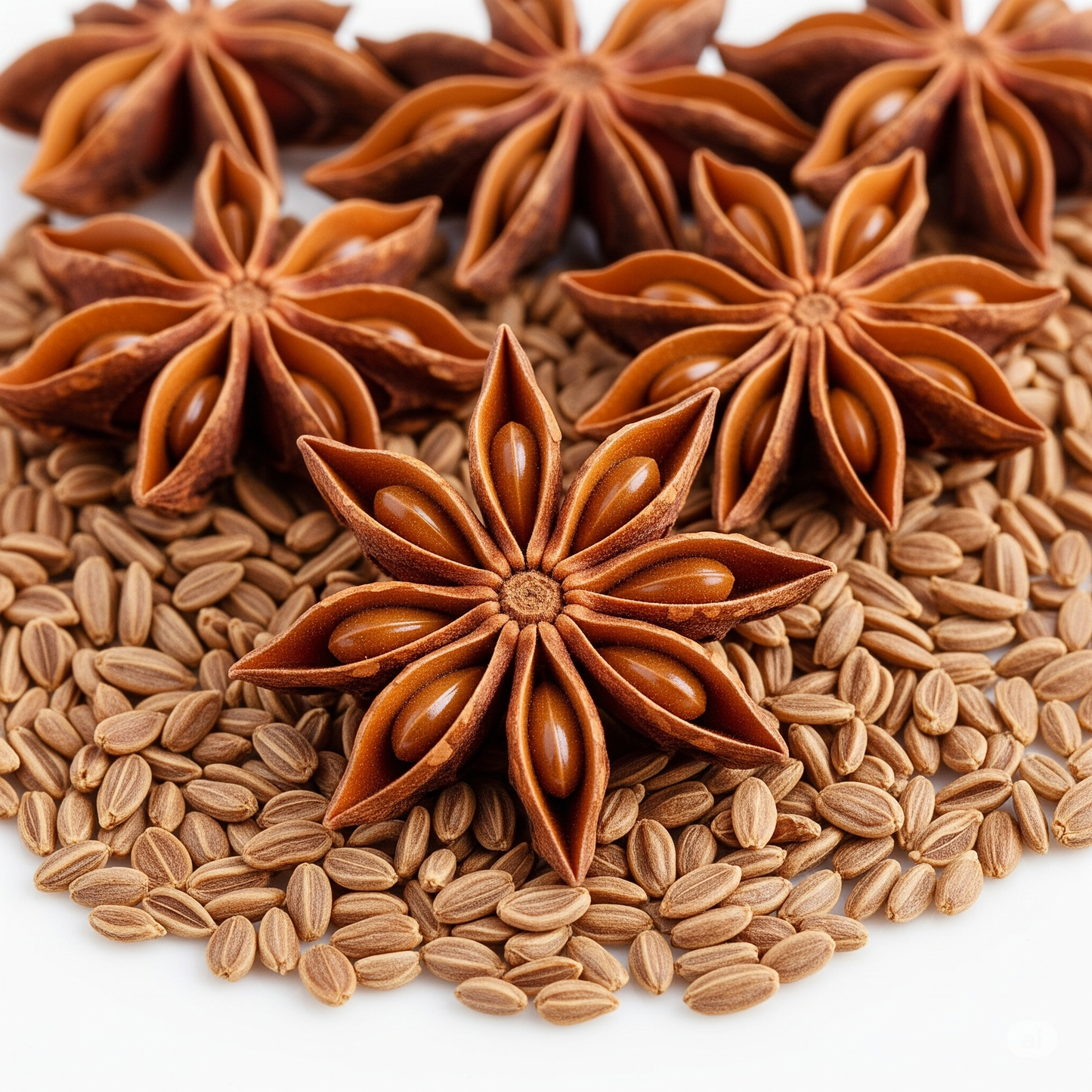Wadi
Anise seeds
Anise seeds
Couldn't load pickup availability
Primary Uses:
1. Culinary uses:
a. Baking - Anise seeds are commonly used in baking, especially in sweet breads and pastries.
b. Cooking - Anise seeds can be used to flavor soups, stews, and sauces.
c. Beverages - Anise seeds are used to flavor liqueurs, such as absinthe and ouzo, and teas.
2. Flavoring uses:
a. Candy - Anise seeds are often used to flavor candy, such as licorice.
b. Chewing gum - Anise seeds are used to flavor chewing gum.
c. Toothpaste - Anise seeds are used to flavor toothpaste.
3. Aroma uses:
a. Potpourri - Anise seeds can be used in potpourri to add a sweet, spicy aroma.
b. Perfume - Anise seeds are used in some perfumes to add a spicy, licorice-like scent.
c. Aromatherapy - Anise seeds are used in aromatherapy to promote relaxation and relieve stress.
Other Uses:
1. Culinary uses: Anise seeds are commonly used as a spice in cooking, particularly in Mediterranean and Middle Eastern cuisine. They are used to flavor breads, cakes, cookies, and other baked goods, as well as soups, stews, and meat dishes.
2. Medicinal uses: Anise seeds have been used for centuries as a natural remedy for a variety of ailments. They are believed to have digestive, respiratory, and menstrual benefits, and are often used to relieve coughs, colds, and indigestion.
3. Religious uses: Anise seeds have been used in various religious ceremonies and rituals throughout history. They are often associated with purification and protection, and are sometimes used as an incense or sprinkled on the ground to ward off evil spirits.
4. Ornamental uses: Anise plants are sometimes grown for their attractive foliage and flowers, which can add color and texture to gardens and landscapes.
5. Insect repellent: Anise seeds are believed to have insect-repelling properties, and are sometimes used to deter pests such as moths and mosquitoes.
6. Dyeing agent: Anise seeds can be used to create natural dyes for fabrics and other materials. The seeds produce a yellowish-brown color when boiled in water.
7. Folklore uses: Anise seeds have been used in various folk remedies and superstitions throughout history. They are sometimes believed to have magical or mystical properties, and are used in rituals and spells for love, luck, and protection.
Caution:
1. Allergic reactions: Anise seeds can cause allergic reactions in some people, leading to symptoms such as itching, swelling, and difficulty breathing.
2. Blood sugar levels: Anise seeds may lower blood sugar levels, which can be dangerous for people with diabetes or hypoglycemia.
3. Gastrointestinal issues: Anise seeds can cause gastrointestinal issues such as nausea, vomiting, and diarrhea, especially when consumed in large amounts.
4. Interactions with medications: Anise seeds can interact with certain medications, including blood thinners, diabetes medications, and sedatives.
5. Pregnancy and breastfeeding: Anise seeds are not recommended for pregnant or breastfeeding women, as they may have negative effects on the developing fetus or infant.
6. Skin irritation: Anise seeds can cause skin irritation in some people, leading to redness, itching, and rash.
7. Toxicity: Anise seeds contain a compound called anethole, which can be toxic in large amounts and may cause seizures or other serious health problems.
Share


